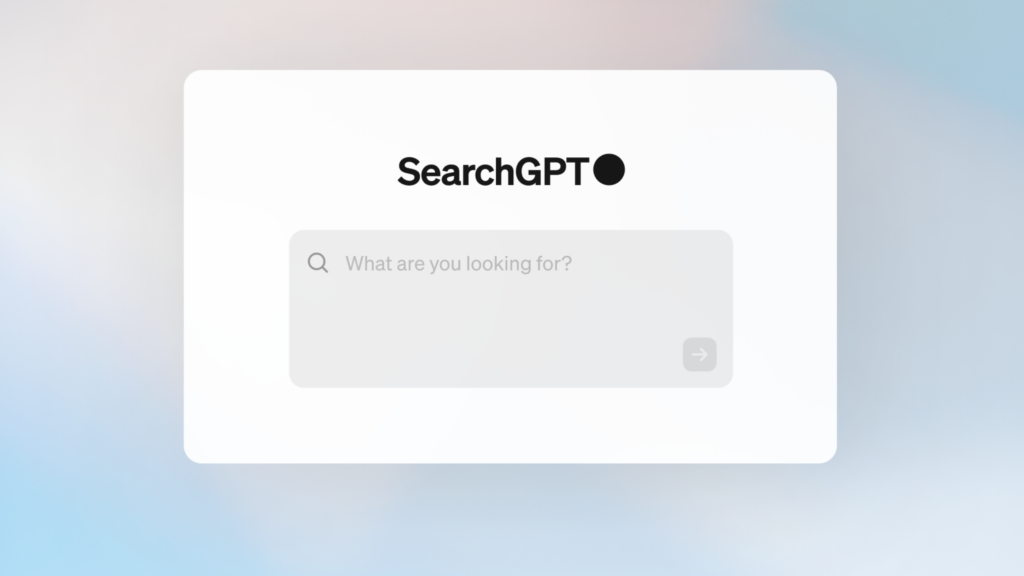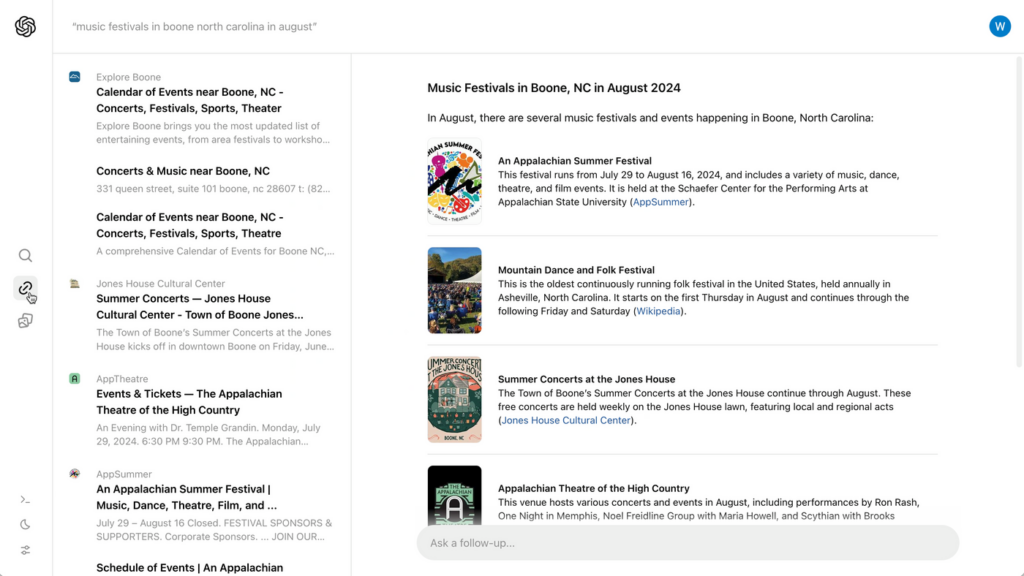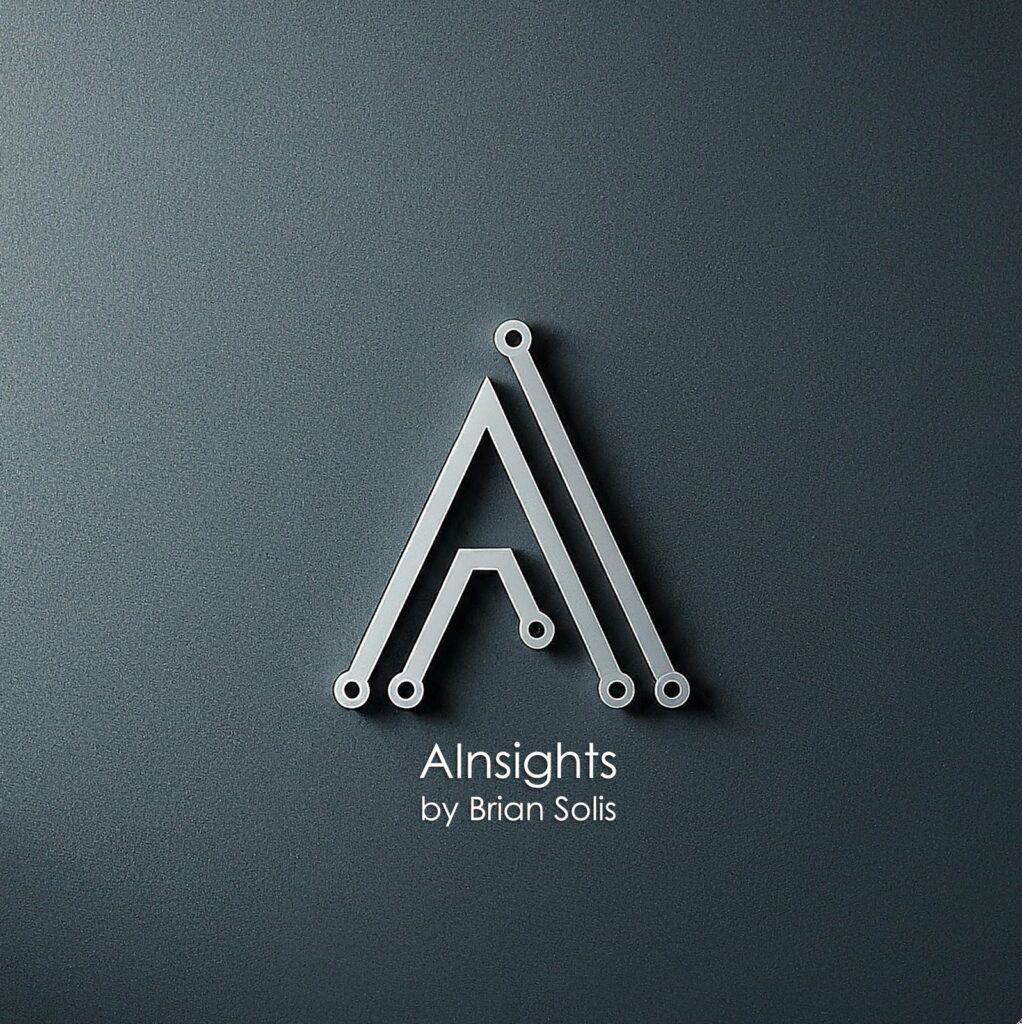
AInsights: Your executive-level insights making sense of the latest in generative AI…
First Perplexity introduced genAI users to the practice of intelligent search. Then Perplexity introduced Pages to reflect intelligent summaries of your research. Now OpenAI is joining the mix to introduce SearchGPT, a genAI-powered search engine designed to take on Google and other generative AI platforms.
SearchGPT leverages OpenAI’s generative AI language models, specifically from GPT-4, to provide more intuitive and conversational search experiences. Instead of just listing links, usually those gamed by search engine optimization (SEO), SearchGPT generates concise summaries and detailed answers, often with relevant links and citations directly embedded in the response.
Let’s explore key features of SearchGPT…

User Experience
Ad-Free Interface: Unlike traditional search engines like Google and Bing, SearchGPT offers an ad-free user experience, which enhances usability by removing distractions.
Enhanced Search Interface: The interface features a larger search box and a three-column layout for easy navigation. Users can toggle between light and dark themes based on their preferences.
Visual Answers: SearchGPT includes a feature for “visual answers,” which provides AI-generated visuals to complement textual information, although specific details about this feature are still emerging.
Real-Time Information
SearchGPT combines real-time web data with AI to deliver up-to-date answers. This approach aims to reduce the effort required to find relevant information by providing clear and timely responses.
Follow-Up Questions
Users can ask follow-up questions in a conversational manner, with the search engine maintaining context from previous queries. This feature makes it easier to delve deeper into topics without starting new searches from scratch.
Publisher Partnerships
OpenAI has partnered with various publishers to ensure that content is properly attributed and linked back to original sources. This collaboration helps maintain a healthy ecosystem for content creators while providing users with credible information.
earchGPT is still in its prototype phase, currently available to a limited group of 10,000 test users. OpenAI plans to gather feedback from these users and publishers to refine the tool further. The ultimate goal is to integrate the best features of SearchGPT into ChatGPT, enhancing its utility as a conversational AI assistant.
AInsights
SearchGPT, OpenAI’s new AI-powered search engine, presents significant implications for business and marketing executives.
Think about SEO and content strategies today? A large set of resources are dedicated to consumer (customer) search behavior. At one point, Google dominated search and the resulting customer journey. For years I was an advisor to Google around micro-moments and also served as a CMO strategist to help brands design customer experiences and journeys that were optimized for mobile devices. Since then, search has continued to evolve with Youtube, Instagram, TikTok, and now genAI evolving search behaviors and journeys.
I call today’s search opportunities “Ignite Moments.” And they can happen anywhere now, requiring brands to reverse-engineer behaviors and technology platforms to build dynamic, contextual, native, and intuitive journeys for customers at the point of engagement.
SEO ad Content
Focus on Quality Over Quantity: SearchGPT’s emphasis on high-quality, well-structured content means that businesses need to focus on creating valuable and coherent content. This shift could penalize low-quality, hastily produced content, rewarding those who invest in thorough and meaningful content creation. Remember, Ignite Moments (more here).
Integrate Real-Time Data: The AI’s capability to access and integrate real-time web data means that SEO strategies must adapt to more dynamic and immediate content updates. This could involve more frequent content reviews and updates to stay relevant.
Marketing and Advertising
Clear Source Attribution: SearchGPT ensures that sources are clearly cited, like Perplexity, which can drive traffic to original content creators. This transparency can enhance the credibility of information and improve trust among users.
Reduced Dependency on Ads: The ad-free nature of SearchGPT might challenge traditional advertising models. Businesses will need to explore new ways to reach their audience, possibly focusing more on organic search strategies and content marketing.
Challenges and Opportunities
Adoption and Adaptation: Convincing users to switch from established search engines like Google will be a challenge. However, businesses that adapt early to the new search paradigm can gain a competitive edge.
Operational Costs and Scalability: The high operational costs associated with AI-powered search engines could be a barrier. Businesses must weigh the benefits against the costs and consider how to scale their digital marketing efforts effectively.
Future Directions
Integration with ChatGPT: OpenAI plans to integrate the best features of SearchGPT into ChatGPT, potentially expanding its reach and utility. This integration could provide businesses with more comprehensive tools for customer interaction and support.
Local and E-commerce Information: SearchGPT’s ability to provide localized results and handle e-commerce queries can be leveraged by businesses to enhance their local SEO and online sales strategies
SearchGPT represents a significant shift in the search landscape, offering both opportunities and challenges for business and marketing executives. By focusing on high-quality content, adapting to new SEO practices, and leveraging the AI’s advanced capabilities, businesses can position themselves to thrive in this evolving intelligent, digital environment.
“AI search is going to become one of the key ways that people navigate the internet, and it’s crucial, in these early days, that the technology is built in a way that values, respects, and protects journalism and publishers. We look forward to partnering with OpenAI in the process, and creating a new way for readers to discover The Atlantic.” – Nicholas Thompson, CEO of The Atlantic
Please subscribe to AInsights, here.
If you’d like to join my master mailing list for news and events, please follow, a Quantum of Solis.


